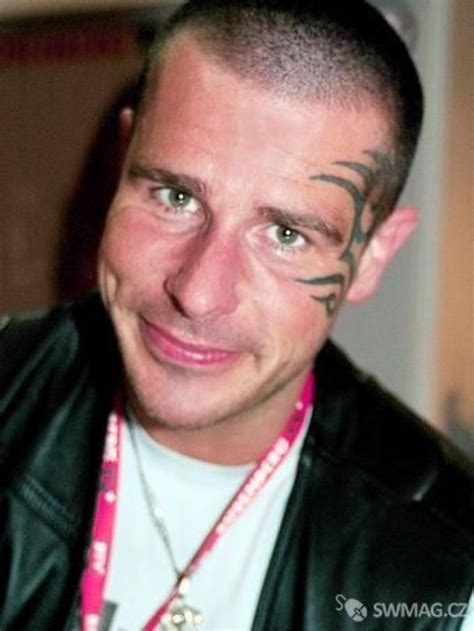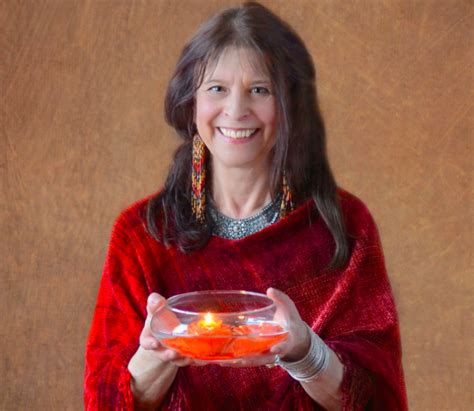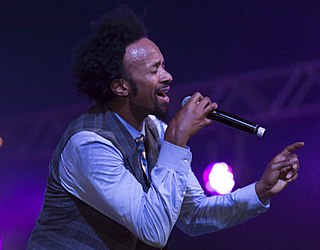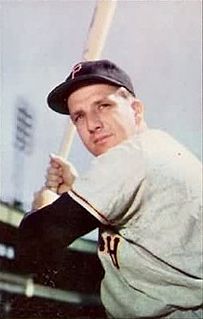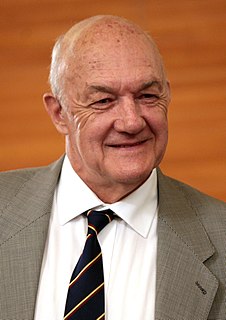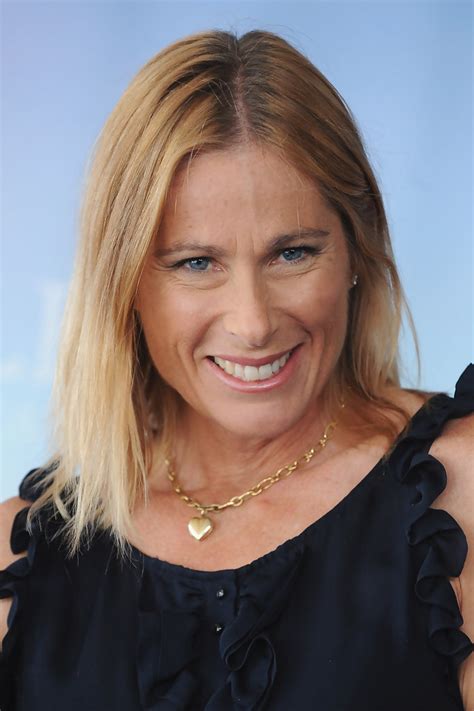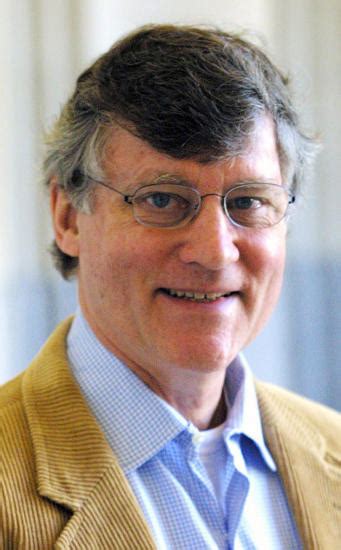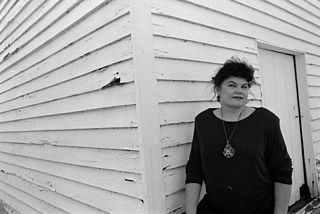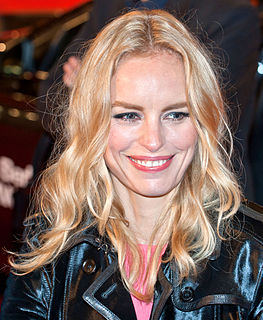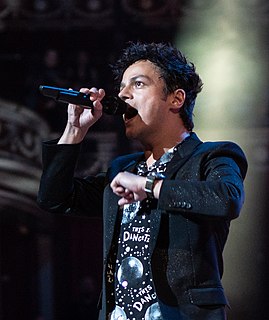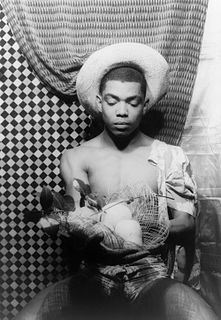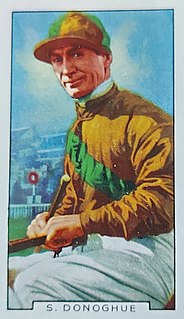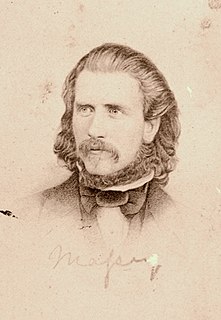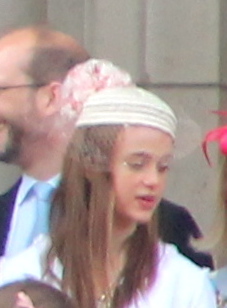Top 479 Biography Quotes & Sayings - Page 8
Explore popular Biography quotes.
Last updated on December 22, 2024.
Since the death of Nikola Tesla in 1943, his life has deserved a worthy biography. Bernard Carlson has delivered that in Tesla: Inventor of the Electrical Age, which portrays Tesla as intensely human. . . . Anyone, whether simply an interested reader or a professional historian, engineer, or physicist, will finish Tesla with a deepened understanding of his world, character, and accomplishments.
The history of men of science has one peculiar advantage, as it shows the importance of little things in producing great results. Smeaton learned his principle of constructing a lighthouse, by noticing the trunk of a tree to be diminished from a curve to a cyclinder ... and Newton, turning an old box into a water-clock, or the yard of a house into a sundial, are examples of those habits of patient observation which scientific biography attractively recommends.
Women's stories are as powerful, inspiring, and terrifying as the goddess herself. And in fact, these are the stories of the goddess. As women, we know her because we are her. Each woman, no matter how powerless she might feel, is a cell within her vast form, an embodiment of her essence, and each woman's story is a chapter in the biography of the sacred feminine.
I usually go to secondhand stores and find what I can. I like finding interesting things: vests, blazers. I tell the band, 'We got to look good when we're up there.' I learned it from Miles Davis. I read about his suits in his biography. Suits mean you're getting paid, and I like the idea that he looked good in his suits.
My first big acting performance was in the Marilyn Monroe biography piece, and it required frontal nudity. I talked to Mira Sorvino, my co-star, about how nervous I was because I didn't know how my mom would react. She said, 'Can I be completely honest with you? I've seen your mom in interviews, and she seems pretty screwed up. I don't think there's much you could do to shock a broad like that.' And from that moment on it was big nipples to the wind!
I'd like to ghost-write Liz Phair's novel. But I don't really know about that. It seems like a dignified thing to segue into as I approach the other side of 45. My hands are just full right now. There's the potential to try to write some kind of biography of Pavement - sort of a cryptic, nonfiction/fiction blowout. The story's never been told well. But that's a lot of inward-gazing that I'm not sure I want to do. I like to look out.
I hope any poem I've ever written could stand on its own and not need to be a part of biography, critical theory or cultural studies. I don't want to give a poetry reading and have to provide the story behind the poem in order for it to make sense to an audience. I certainly don't want the poem to require a critical intermediary - a "spokescritic." I want my poems to be independently meaningful moments of power for a good reader. And that's the expectation I initially bring to other poets' writing.
Somebody said, "Well, you're going to write your definitive book about your life, biography." No, I'm not. I haven't done that. I wrote a book of letters which gives an insight into the real me as opposed to the public perceptions of me. But I'm convinced historians will figure out the things we got wrong and hopefully the things we got right.
[Judge and Jury] is outstanding. I have
learned more about the history of
baseball, true history, than from
anything I have ever read or heard
about. [It's] research and documentation
clarifies so many of the personalities
and events that took place before 'my
time' in the game. Jacques Barzun's
quote: 'Whoever would know the heart
and mind of America had better learn
baseball' should be supplanted by [this]
biography of Landis.
Computer chips will cost about a penny. That's the cost of scrap paper. The Internet will be basically for free and it will be inside our contact lens. When we blink, we will go online. When we see somebody that we don't recognize, our contact lens will identify who they are, print out their biography in your contact lens and translate, if they're speaking Chinese, into English with subtitles as they speak.
I was obsessed with Lil' Bow Wow growing up, and you couldn't see the white of my walls because they were plastered with his photos. This is even more embarrassing: I had a notebook full of facts about Bow Wow and different pictures. I basically made a biography notebook about him and his life when he was, like, 13.
Many are the lives of men unwritten, which have nevertheless as powerfully influenced civilization and progress as the more fortunate Great whose names are recorded in biography. Even the humblest person, who sets before his fellows an example of industry, sobriety, and upright honesty of purpose in life, has a present as well as a future influence upon the well-being of his country; for his life and character pass unconsciously into the lives of others, and propagate good example for all time to come.
The cry that 'fantasy is escapist' compared to the novel is only an echo of the older cry that novels are 'escapist' compared with biography, and to both cries one should make the same answer: that freedom to invent outweighs loyalty to mere happenstance, the accidents of history; and good readers should know how to filter a general applicability from a particular story.
You have to get inside the people you are writing about. You have to go below the surface. And that's to a very large degree what all writers are doing - they're trying to get below the surface. Whether it's in fiction or poetry or writing history and biography. Some people make that possible because they write wonderful letters and diaries. And you have to sort of go where the material is.
I was interested in the ways we can write biography. When you're first starting to write about your own life it feels so shapeless because you don't know how to make your own story cohesive. How do I pluck a story out of the entirety of what it means to be alive. It occurred to me recently that when you're telling a story about your own life, rather than taking a chunk, you're kinda like lifting a thread from a loom.
A damnably readable, streamlined, yet deeply researched work. Skipping the ancestors and aftermath of conventional biography, Max gives us the man, his work, and his times-the niceties of which (so complicated, so exquisitely intertwined) Max articulates with, well, Wallace-like lucidity and wit. Above all this is the story of a touching young man who insisted on being something better than simply the smartest person in the room.
I wanted to make a film that wasn't just a biography. When you watched it, you actually felt that you watched a movie, that you had an emotional reaction. In order to do that, I felt that I had to really keep myself emotionally raw while working on the film. I had to feel myself crying, so the audience could be moved, too.
Few people ask from books what books can give us. Most commonly we come to books with blurred and divided minds, asking of fiction that it shall be true, of poetry that it shall be false, of biography that it shall be flattering, of history that it shall enforce our own prejudices. If we could banish all such preconceptions when we read, that would be an admirable beginning.
When I went to an Aspen seminar on "American Scriptures" - the bicentennial of the Declaration and they discussed the preamble and the Gettysburg Address and much more, but not Lincoln's Second Inauguration, I challenged that omission and they said find something on it and to my astonishment, at that time, there was no book or long article that really did it. So I wrote one that attempted to do it justice. Although obscurely published, that essay got a nice bounce. Somehow David Donald saw it, and in his notes to his biography singled it out.
The difficulty will be to keep her from learning too fast and too much. She is always sitting with her little nose burrowing into books. She doesn't read them, Miss Minchin; she gobbles them up as if she were a little wolf instead of a little girl. She is always starving for new books to gobble, and she wants grown-up books--great, big, fat ones--French and German as well as English--history and biography and poets, and all sorts of things. Drag her away from her books when she reads too much.
I get letters from two kinds of readers. History buffs, who love to read history and biography for fun, and then kids who want to be writers but who rarely come out and say so in their letters. You can tell by the questions they ask - How did you get your ?rst book published? How long do you spend on a book? So I guess those are the readers that I'm writing for - kids who enjoy that kind of book, because they're interested in history, in other people's lives, in what has happened in the world. I believe that they're the ones who are going to be the movers and shakers.
In a world of alternative lifestyle options, strategic life planning becomes of special importance. Like lifestyle patterns, life plans of one kind or another are something of an inevitable concomitant of post-traditional social forms. Life plans are the substantial content of the reflexively organised trajectory of the self. Life-planning is a means of preparing a course of future actions mobilised in terms of the self's biography. We may also speak here of the existence of personal calendars or life-plan calendars, in relation to which the personal time of the lifespan is handled.
And since we don’t just forget things because they don’t matter but also forget things because they matter too much because each of us remembers and forgets in a pattern whose labyrinthine windings are an identification mark no less distinctive than a fingerprintit’s no wonder that the shards of reality one person will cherish as a biography can seem to someone else who, say, happened to have eaten some ten thousand dinners at the very same kitchen table, to be a willful excursion into mythomania
When I was touring with my Vladimir Putin biography, which was published all over the world, people would ask me, How come you're still there, why haven't you left? I would say, I'm staying, it's my home. He can leave! It felt very good to say that. But now - he wins. It's not natural for people in the opposition to leave. It's always a personal catastrophe. And yet he's gotten people out of the country. That's the most terrifying thing about the current situation, and for the future of the country.
The difference between America and England is that the English think 100 miles is a long distance and the Americans think 100 years is a long time. The difference between an autobiography and an unauthorized biography is like the difference between an account of your life written by your mother and one written by your mother-in-law.
A Daring Life: A Biography of Eudora Welty is a beautifully written portrait of Eudora Welty and her amazing life. Carolyn J. Brown carries the reader through Welty's long, productive writing career and introduces her family and friends along the way. The book's very readable text, its lovely use of Welty quotes, and its excellent photographs make the work a treasure. This intimate look at Eudora Welty is a welcome addition for her readers.
If it had taught them nothing else, twenty years of living past high school had taught them self-preservation. ... No one was going to risk putting his ego on the line; they would come prepared with dates, flattering clothes, and a well-rehearsed, carefully edited biography. They would all be kind to each other. High school was enough torture for one lifetime.
Each truth that a writer acquires is a lantern, which he turns full on what facts and thoughts lay already in his mind, and behold, all the mats and rubbish which had littered his garret become precious. Every trivial fact in his private biography becomes an illustration of this new principle, revisits the day, and delights all men by its piquancy and new charm.
In 1995, I went to Berlin to acting school, which was in East Berlin. And I decided to live in the east, because I thought if I go to West Berlin, I might as well stay in Stuttgart in the West because I know all the signs, and the way we deal with each other, and I wanted to get to know the other part of Germany and how they lived and what their history was and their biography. In that period of time, I learned a lot, and it helped me a lot.
I had to imagine myself into certain aspects of [Julian Assange] character for our version of events. That involved extrapolating based on clues in his biography, his public persona, photographs, and other accounts of him by people who encountered him during that extraordinary period from 2007 to 2010 that we charted in the film [The Fifth Estate]. So, it involved a lot of research but, sadly, no contact with the man himself.
Like Richard Ellmann on James Joyce, Arnold Rampersad on Ralph Ellison is in a class of its own. His masterful and magisterial book is the most powerful and profound treatment of Ellison's undeniable artistic genius, deep personal flaws, and controversial political evolution. And he reveals an Ellison unbeknownst to all of us. From now on, all serious scholarship on Ellison must begin with Rampersad's instant and inimitable classic in literary biography.
When we begin to reflect Christ, the Bible, when more understood as being centered around Christ, seems to be potentially every man's biography regarding God's promised experiences and truth for him - his individual, unique path of humbling oneself before the Lord and then being exalted by the Lord back into his true and righteous personhood. Many followers may speak of it merely to try to change other people (before changing themselves), but the prophets speak of it as a living word which miraculously tells their very own experiences.
It is one of the many merits of this admirable biography of Proust's mother that it invites one to return to the novel with perhaps a fuller understanding of Proust's heredity, hinterland, and upbringing. . . . This fascinating book is full of interesting social and cultural observation, of information about French Jewish life, the position of Jews in society and, of course, the Dreyfus case. But it is essentially a study of one of the most remarkable and fruitful of mother-son relationships. As such it is a book that every Proustian will want to read.
Packed with fascinating personal perspective and testimony, Michael Takiffs A Complicated Man wholly justifies its title. The book is far more than a kaleidoscopic oral biography of President Bill Clinton. Aspect by aspect, it guides us through the struggles of postmodern America, as the most ambitious baby boomer of his generation seeks to modernize the Democratic Party-and, as in a Greek drama, is fated to be destroyed. Veritably, an all-American saga, with a cast of thousands-favorable and unfavorable.
I'd prefer people read about Churchill and how he wasn't overwhelmed by Nazi Germany. Amazing; that the morale of a country rested on one person's shoulders. Extraordinary people carried that country through its darkest hours; truly inspirational. I suppose that's my theme. Whether it's a biography or a movie; whether it's fictional or true, I'm inspired by people doing great things.
I usually have Kafka biography in my bathroom. It's a book I can open at random and feel interested in immediately. It's really funny. With this book, since I'm opening it at random and immediately interested, I don't feel the need to read more than I want to read, in that there's not, like, a plot that leads me along. So I can stop whenever.
It sometimes happens that the town child is more alive to the fresh beauty of the country than a child who is country born. My brother and I were born in London...but our descent, our interest and our joy were in the north country'. Quoted in The Tale of Beatrix Potter a Biography by Margaret Lane, First Edition p 32-33
I push back against a deeply-entrenched tendency in American culture to label quickly and no longer even examine the labels that were initially stamped on a person. I don't have a problem with any of my "hyphenated" biography - I don't have any problem with that at all. The world would be a better place if our thread of hyphenation were truly embraced beyond mere naming and category.
The biographies of the great men see their excesses as signs of their greatness. But Jean Rhys, in her biography, is read as borderline; Anaïs Nin is borderline; Djuna is borderline; etc. etc. Borderline personality disorder being an overwhelmingly gendered diagnosis. I write in Heroines: “The charges of borderline personality disorder are the same charges against girls writing literature, I realize - too emotional, too impulsive, no boundaries."
if I believed that the choice lay between a sacrifice of the completest order of biography and that of the inviolability of private epistolary correspondence, I could not hesitate for a moment. I would keep the old and precious privacy,-the inestimable right of every one who has a friend and can write to him, - I would keep our written confidence from being made biographical material, as anxiously as I would keep our spoken conversation from being noted down for the good of society.
What a wee little part of a person's life are his acts and his words! His real life is led in his head, and is known to none but himself. All day long, the mill of his brain is grinding, and his thoughts, not those of other things, are his history. These are his life, and they are not written. Everyday would make a whole book of 80,000 words -- 365 books a year. Biographies are but the clothes and buttons of the man -- the biography of the man himself cannot be written.
Sports biography at its best. Rich in period detail, anecdote, and fresh perspective, Strong Boy paints both the good and the bad sides of success, as America's growing celebrity culture turned a simple Irish American gladiator into a national, in fact international hero. A very human story with profound parallels for our sports-obsessed culture today!
A lot of the medical imagery has to do with my own biography. I had open heart surgery, I had knee replacements, I had a hiatal hernia, etc. Every time you go for surgery, you get a whole spectrum of imaging. Of course, I've been doing research in imaging technology across the board for close to twenty years. When you think about it, medical imaging is actually quite new. The first major medical image was the x-ray in 1895. That was the first time you got imaging of anything that's in the bodily interior.
It is long ere we discover how rich we are. Our history, we are sure, is quite tame: we have nothing to write, nothing to infer. But our wiser years still run back to the despised recollections of childhood, and always we are fishing up some wonderful article out of that pond; until, by and by, we begin to suspect that the biography of the one foolish person we know is, in reality, nothing less than the miniature paraphrase of the hundred volumes of the Universal History.
DeFrantz's study...is not the first book about the protean Ailey, who was born in hardscrabble Texas in 1931 and died in 1989 after creating close to 80 works. But it is perhaps the most comprehensive, combining biography, criticism, the analysis of dance criticism, and a sort of corporate history, siting the now firmly established Alvin Ailey American Dance Theater in the international cultural landscape.
[Photography] allows me to accede to an infra-knowledge; it supplies me with a collection of partial objects and can flatter a certain fetishism of mine: for this 'me' which like knowledge, which nourishes a kind of amorous preference for it. In the same way, I like certain biographical features which, in a writer's life, delight me as much as certain photographs; I have called these features 'biographemes'; Photography has the same relation to History that the biographeme has to biography.
Perhaps the deepest reason we are afraid of death is that we do not know who we are. We believe in a personal, unique, and separate identity; but if we dare to examine it, we find that this identity depends entirely on an endless collection of things to prop it up: our name, our "biography", our partners, family, home, job, friends, credit card ... It is on their fragile and transient support that we rely for our security. So when they are all taken away, will we have any idea of who we really are?
I arrived at my way of "working" as a way of visually approximating what I feel the tone of fiction to be in prose versus the tone one might use to write biography; I would never do a biographical story using the deliberately synthetic way of cartooning I use to write fiction. I try to use the rules of typography to govern the way that I "draw," which keeps me at a sensible distance from the story as well as being a visual analog to the way we remember and conceptualize the world.
The second volume of Reiner Stach's epic biography of Franz Kafka . . . [is] a tangle of counter-grained and often under-sourced life stories, but reading Stach's magnificent narrative (wonderfully translated by Shelley Frisch) straight through brings death, not life, to the forefront. Stach is a compulsively readable writer. . . . [A]s in the previous volume, the prose in The Years of Insight is supple and very appealingly complex--all of which, once again, is perfectly rendered by Frisch.
Christianity was neither original nor unique, but that the roots of much of the Judeo/ Christian tradition lay in the prevailing Kamite (ancient Egyptian) culture of the region. We are faced with the inescapable realization that if Jesus had been able to read the documents of old Egypt, he would have been amazed to find his own biography already substantially written some four or five thousand years previously.
I use biography, I use literary connections (as with Platen - this seems to me extremely helpful for appreciating the nuances of Mann's and Aschenbach's sexuality), I use philosophical sources (but not in the way many Mann critics do, where the philosophical theses and concepts seem to be counters to be pushed around rather than ideas to be probed), and I use juxtapositions with other literary works (including Mann's other fiction) and with works of music.
If we wish to know about a man, we ask 'what is his story--his real, inmost story?'--for each of us is a biography, a story. Each of us is a singular narrative, which is constructed, continually, unconsciously, by, through, and in us--through our perceptions, our feelings, our thoughts, our actions; and, not least, our discourse, our spoken narrations. Biologically, physiologically, we are not so different from each other; historically, as narratives--we are each of us unique.
The most violent revolutions in an individuals beliefs leave most of his old order standing. Time and space, cause and effect, nature and history, and ones own biography remain untouched. New truth is always a go-between, a smoother-over of transitions. It marries old opinion to new fact so as ever to show a minimum of jolt, a maximum of continuity.
I know a bit about his [Sirk] life, but it's more about his style than biography. He was European and came out of a theater background, and could easily be defined as 'Brechtian.' He was expressionistic in his films, and was an example of those intensely intellectual artists who ended up working for American studios, and was handed the Ladies Home Journal and asked to adapt the stories for the screen. He found ways to use his artistry to make them interesting and nuanced, while critiquing American values in the process.
Producer Ed Pressman had a book about Diane Arbus - it's the only biography that exists - and there had been many Diane Arbus scripts. Many. I don't even know how many over the years. And it's sort of a cursed project, for lots of reasons. There's probably some pile somewhere of all these weird attempts, all these portraitures that can't get made.
I listen to audiobooks: the last one was Vivienne Westwood's biography. She's the most amazing woman. The way she's used her platform in fashion to be an activist and promote causes like global warming, climate change, and inequality in the world... It gives high fashion, what seems like it can be 'for a certain group,' a way to help real causes.
The Tipping Point is the biography of an idea, and the idea is very simple. It is that the best way to understand the emergence of fashion trends, the ebb and flow of crime waves, or, for that matter, the transformation of unknown books into bestsellers, or the rise of teenage smoking, or the phenomena of word of mouth, or any number of the other mysterious changes that mark everyday life is to think of them as epidemics. Ideas and products and messages and behaviors spread just like viruses do.
I often tell people who want to write historical fiction: don't read all that much about the period you're writing about; read things from the period that you're writing about. There's a tendency to stoke up on a lot of biography and a lot of history, and not to actually get back to the original sources.
